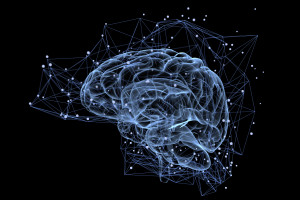 Individuals who are fortunate not to suffer from drug addiction or alcoholism will have a difficult time in understanding the mind and thought processes of a drug addict or alcoholic. It will seem apparent to everyone, including a substance abuser, that drugs and alcohol are harming every aspect of the addict’s or alcoholic’s life, including his health, relationships with family and friends, and career. Given the extreme level of harm, a non-addict may well wonder why the drug addict or alcoholic does not take all steps necessary to break his addictions. The answer to this query lies within the changes that an addict’s brain and thought processes undergo as part of the addiction process.
Individuals who are fortunate not to suffer from drug addiction or alcoholism will have a difficult time in understanding the mind and thought processes of a drug addict or alcoholic. It will seem apparent to everyone, including a substance abuser, that drugs and alcohol are harming every aspect of the addict’s or alcoholic’s life, including his health, relationships with family and friends, and career. Given the extreme level of harm, a non-addict may well wonder why the drug addict or alcoholic does not take all steps necessary to break his addictions. The answer to this query lies within the changes that an addict’s brain and thought processes undergo as part of the addiction process.
Drug and alcohol addiction rewires the electrical and neurochemical functioning of an addict’s brain. An addict’s dopamine reward center goes into overdrive during the initial stages of drug addiction to create the overwhelming sensations of pleasure that are catalyzed by drugs or alcohol. After repeated over-stimulation, an addict’s neurotransmitter receptors will shut down and the addict will not experience any level of pleasure, but will instead only crave the drugs of alcohol that first created those pleasurable feelings. At this stage, the addict begins to rationalize his drug or alcohol use as a means to handle stress or otherwise to stay on some even keel in the midst of chaotic circumstances that surround him. Logic and reason play no role in this calculation. When confronted about his use of drugs or alcohol, an addict will deny both to himself and everyone else that he has a problem. He may even create a dissociated part of his personality that indulges his need for drugs or alcohol while another side of his personality understands that he has a problem but is unable to do anything about that problem.
Rather than acknowledging drugs or alcohol as a problem, an alcoholic or drug addict’s brain will rationalize his drug use and shift the source of the problem to something else. An addict’s reasons for drug or alcohol use might include stresses from a job or family life, an inability to enjoy himself without drugs or alcohol, a belief that excessive use of drugs or alcohol is harming only the addict and no one else, or denial of the dangers of excessive drug or alcohol use. These thought processes are not derived from an addict’s poor willpower. Rather, an addict’s brain becomes hardwired to demand more drugs or alcohol and to ignore all common sense warnings that are so apparent to non-addicted individuals. An addict or alcoholic is unable to see and appreciate the reality of his situation.
Drug addicts and alcoholics who do seek treatment for their disease frequently cite the feeling that they hit rock bottom and could sink no lower. That sensation is often the only thing that will push an addict through his denial of a problem. Addicts or alcoholics who are pushed into treatment by concerned friends or family members often carry enough of a sense of denial such that their treatment is ineffective or they quickly go into relapse. Moreover, an alcoholic or drug addict’s brain never fully recovers from addiction. Recovery are lifelong processes that require constant vigilance and effort to achieve sobriety.
Scientists, psychiatrists and psychotherapists devote years and entire careers toward understanding how a human brain functions and responds to different stimuli. Gaining an understanding of an addicted brain is a challenge even for the best brain researchers. If you have questions or would like additional information on what might be going through an alcoholic or addict’s mind, please contact the staff and counselors at the Lead Recovery Center at 1-800-380-0012. We can address your questions and bring you closer to an empathetic understanding that can bring you or your loved ones closer to seeking and accepting treatment for drug addiction or alcoholism.

